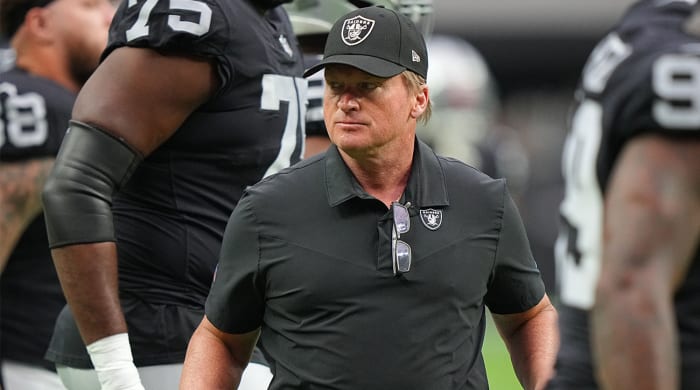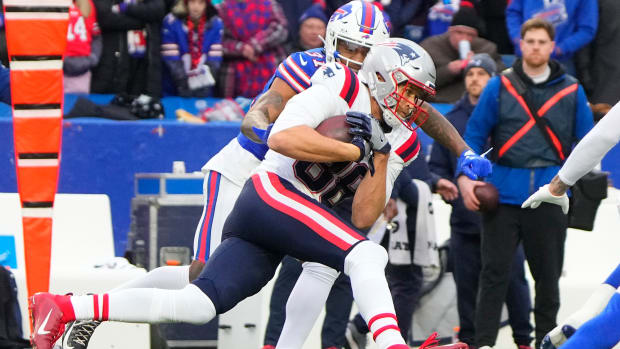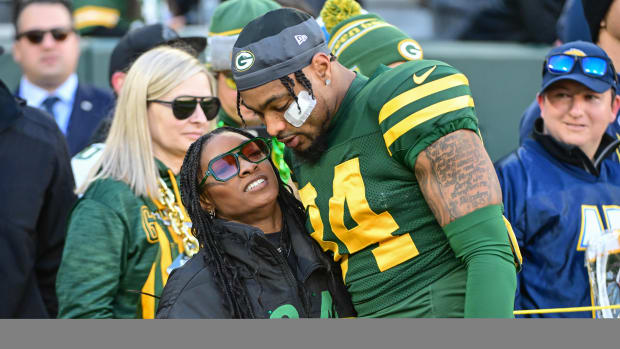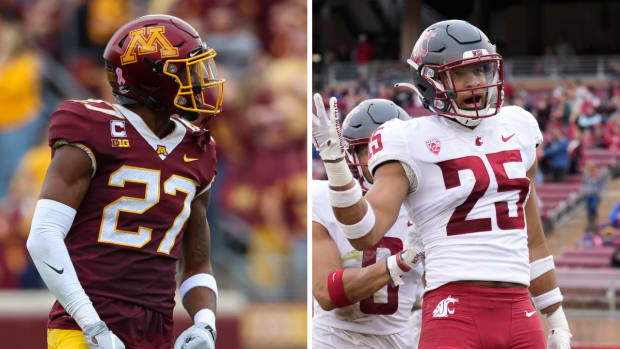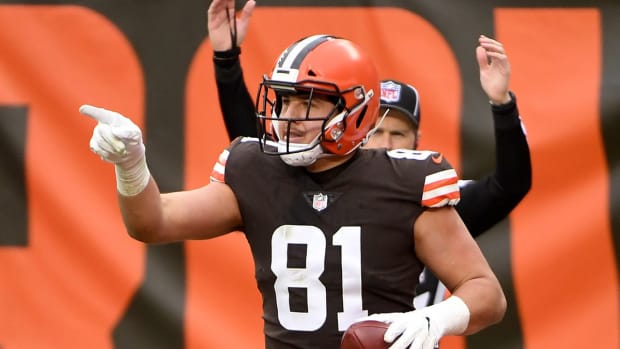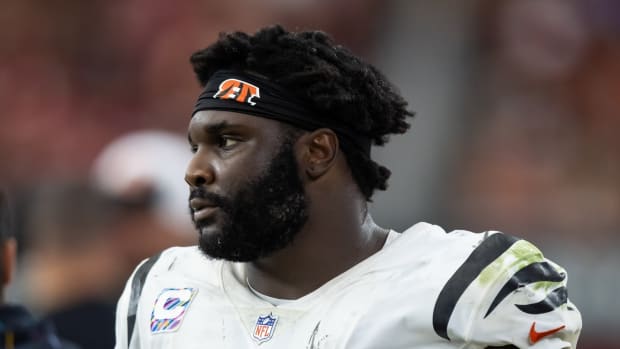Jon Gruden’s Facing More Consequences Than Daniel Snyder Shows Us the NFL’s Priorities
There’s this famous story from the 1987 players strike, in which then Cowboys president Tex Schramm encapsulated the situation facing NFLPA chief Gene Upshaw, who himself was once a Hall of Fame player during a dynastic Raiders era.
“Gene, here’s what you have to understand,” Schramm said offhandedly. “We’re the ranchers and you’re the cattle. And we can always get more cattle.”
That story is a good reference point for anyone who covers or follows the NFL, and we got a reminder again Monday night, as The New York Times published a dump of Jon Gruden’s emails.
Monday’s update came after The Wall Street Journal had published an email showing Gruden to have said Upshaw’s successor, DeMaurice Smith, “has lips the size of [sic] michellin tires,” evoking a harmful racial trope. In the new batch of emails were misogynistic content and anti-LGBTQ comments that sealed his fate. Gruden met with Raiders’ owner Mark Davis soon thereafter to make the inevitable a reality and resign from his post as the team’s coach.
Hovering over all of this was another reality.
Powerful as he might have seemed, Gruden is just another cow. And Washington owner Daniel Snyder is a rancher. And NFL owners, in private settings, aren’t shy about reminding people of these realities.
This, then, was a public show of them.
Gruden’s emails became public as a result of an independent investigation the NFL commissioned into the workplace culture of the Washington Football Team—a probe that was prompted by reporting in The Washington Post that pointed the finger right at Snyder, among others. The investigation took 11 months, and its completion was greeted by the NFL with a broom swiftly sweeping it under the rug.
The league released the news just before the four-day Fourth of July weekend, refused to make specifics of Beth Wilkinson’s findings public and, presumably, crossed its fingers that questions directed at Snyder’s involvement would simply go away. Remember, this is a league that published a 243-page report on Tom Brady’s deflating footballs, a 144-page report on Richie Incognito’s harassing teammate Jonathan Martin, and a 96-page report on Ray Rice’s domestic violence case. All of those reports can still be found, in full, online.
Those reports are on the cattle. Conveniently enough, you won’t find ranchers implicated in them.
And in this most recent case, the league just said in broad strokes that this particular ranch was rotten, while letting the rancher distance himself from the stench, and take responsibility in the sort of way a college coach whose program was busted for a lack of institutional control would. The first line of Snyder’s statement from that holiday weekend lays that bare: “I have learned a lot in the past few months about how my club operated.”
So you want to know why you won’t see the breadth of Wilkinson’s report? Because, based on what we know, and based on the intention of Snyder’s statement, it’d likely make a liar of one of the NFL’s 31 ranchers—the ones who, remember, aren’t just paying their own people, but also those who work at 345 Park Avenue.
Now, ask yourself this: Are Gruden’s comments really central to what the league paid Wilkinson for over 11 months to find out? Gruden wasn’t working, and has never worked, for the franchise before. Yes, the correspondence with his friend and then Washington executive Bruce Allen revealed some of the issues that festered inside the building and surely helped Wilkinson get to her conclusions. But Gruden’s abhorrent language was, and is, separate.
And yet, the resulting twist to all of this is that Las Vegas’s operation stands to feel the brunt of Wilkinson’s report more than Washington’s has. The Raiders are without a team president and in need of several execs on the business side, with decades-old financial problems to solve that led to old team execs’ being ousted. Those people would, presumably, help hire the new full-time coach, as would GM Mike Mayock—only Mayock was rumored to be fighting for his job in the spring, even though many of the team’s failed decisions on players were Gruden’s, not his.
Snyder’s franchise, meanwhile, has achieved a level of football stability amid the chaos, with the additions of Jason Wright, Ron Rivera, Martin Mayhew and Marty Hurney to the top of the org chart. That Monday was, really, just another day for that group isn’t anything to be upset over, since none of them were involved in the ugly history that preceded their arrival.
That it could’ve been a relatively normal Monday for Snyder, though, is.
And that’s partly because, very clearly, Gruden’s emails were leaked with some intention, given that there were 650,000 emails involving people across the Washington organization and those tangentially connected to it, and only the Gruden emails have surfaced (so far). It’d be pretty tough, I’d say, for anyone to buy the idea that those were the only ones with offensive ideas or language, given what we know about the franchise, and the $10 million fine the NFL levied against it.
So if the NFL came across the Gruden emails and decided something had to be done, and wanted to make them public before someone else did, then that’s understandable. But if you accept that, the next logical question is why it was so important to be transparent about something someone on the fringes of the investigation said, all while you’ve barely uttered a word about the horrible things that were alleged to be happening inside one of your workplaces.
Of course, I’d say we already know the answer to that one.
More NFL coverage:
































